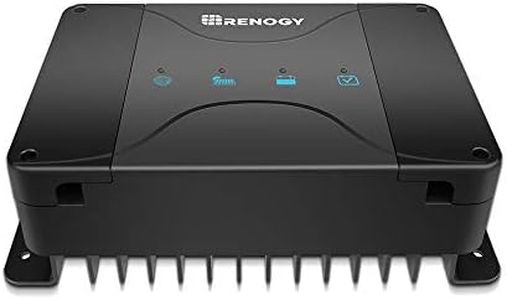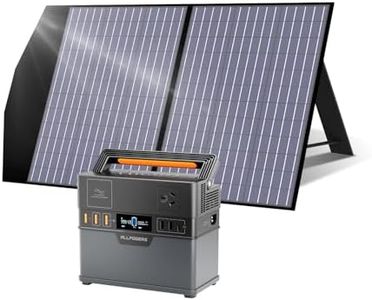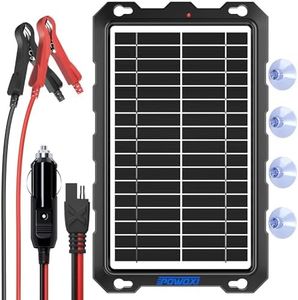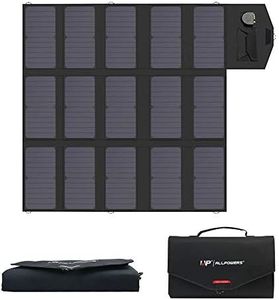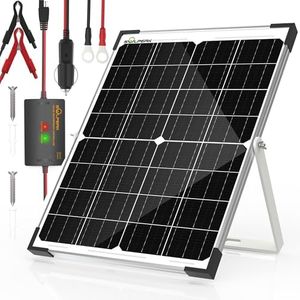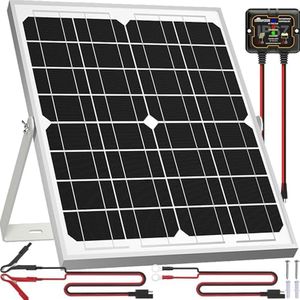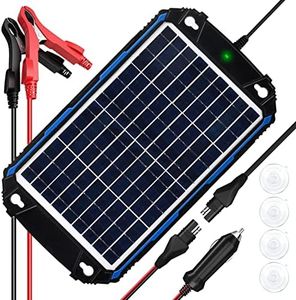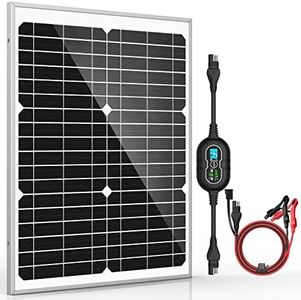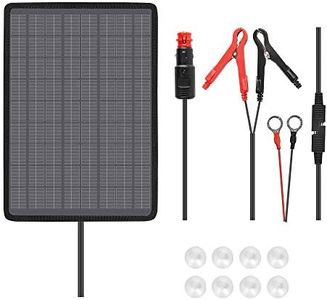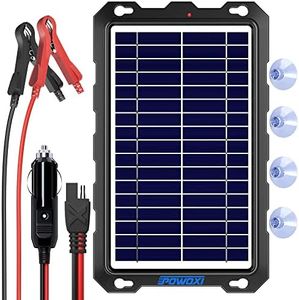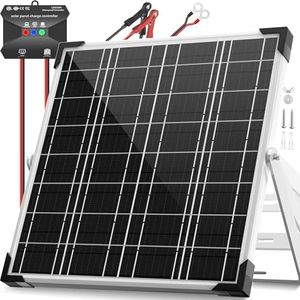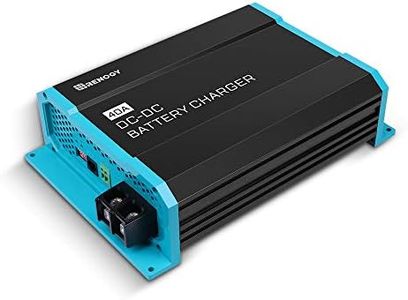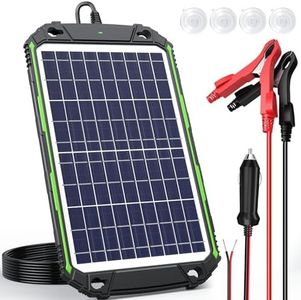We Use CookiesWe use cookies to enhance the security, performance,
functionality and for analytical and promotional activities. By continuing to browse this site you
are agreeing to our privacy policy
10 Best Solar Car Battery Chargers
From leading brands and best sellers available on the web.By clicking on a link to a third party's website, log data is shared with that third party.
Buying Guide for the Best Solar Car Battery Chargers
Choosing a solar car battery charger can be a smart move for keeping your vehicle's battery topped up, especially if you park outside or have a car that you don’t drive every day. These chargers harness sunlight and turn it into electricity to maintain or sometimes recharge your car battery. When picking a solar car battery charger, you want to focus on how much energy you need, how often you'll use it, where you'll place it, and the type of battery you have. Understanding some key features will help you find a charger that’s effective, reliable, and matches your car use habits.Power Output (Wattage)Power output, usually measured in watts (W), tells you how much energy the charger can deliver to your battery from sunlight. This is important because more wattage means the charger can provide more current to charge your battery faster or maintain charge more effectively in cloudy conditions. Lower wattages (5–10W) are great for basic maintenance and keeping a battery topped up when exposed to sunlight regularly, but will be slow for charging a dead battery. Mid-range chargers (10–20W) are suitable for keeping batteries in good condition even if you live in a less sunny area or your car has higher power drain from alarms or electronics. High wattage models (20W and up) are better if you need to recharge a partially drained battery more quickly or use the charger less frequently. To pick the right power for you, think about whether you mostly want to maintain your battery between drives or need to recharge it after leaving lights on or not driving for weeks.
Voltage CompatibilityCar batteries are generally 12V, but some vehicles (like trucks or RVs) may use 24V systems. The voltage compatibility tells you which types of batteries the charger can handle. It's important because using the wrong voltage can undercharge or damage your battery. Most solar car chargers are made for 12V batteries, which suit most cars. If you have a larger vehicle or special use case, check your battery’s voltage before choosing. Always match the charger's voltage to your battery, and if you’re unsure, your vehicle’s manual will list the battery voltage.
Type of Connection (Cigarette Lighter/Direct Clips)This refers to how you connect the charger to your car’s battery—either by plugging it into the cigarette lighter socket or attaching it directly to the battery with clips. Plugging into the lighter is quick, easy, and safe for daily parking lot use, but only works if your lighter socket is active when the car is off. Direct clips attach straight to the battery, which works for all cars but requires opening the hood and being careful about polarity. When deciding, consider your comfort with handling the battery and the convenience factor of where you’ll use the charger most.
Built-in Safety FeaturesSafety features like overcharge protection, reverse polarity protection, and blocking diodes (which prevent battery drain at night) are important to keep both your battery and your vehicle’s electrical system from being damaged. Overcharge protection stops the charger when the battery is full, while reverse polarity protection prevents accidental damage if you connect the clips the wrong way around. Blocking diodes ensure that power only flows one way—into your battery. For daily convenience and safety, look for chargers that specifically mention these features, especially if you plan to leave the charger connected for long periods.
Weatherproofing and DurabilityA good solar car battery charger needs to handle outdoor conditions—think rain, sun, heat, and even the occasional bump or splash. Weatherproofing means the solar panel and any connectors have seals or covers to keep out water and dust, preventing damage. If you’ll be leaving the charger on your dashboard or mounting it outside, make sure it mentions UV resistance and waterproof ratings (like IP65 or IP67). If used mostly indoors or rarely, basic build quality is fine. Your typical parking situation and climate are key for deciding how much weatherproofing you actually need.
Panel Size and PortabilityThe size and weight of the solar panel affect how easy it is to position or store. Bigger panels usually provide more power, but take up more space on your windshield or dashboard. Smaller, lighter chargers are easy to move and store when not in use, but may charge slower. If portability and convenience are top priorities because you move between vehicles or want to keep your dash clear, a compact panel makes sense. If you can dedicate some space and want faster charging, a larger panel is a good trade-off.
